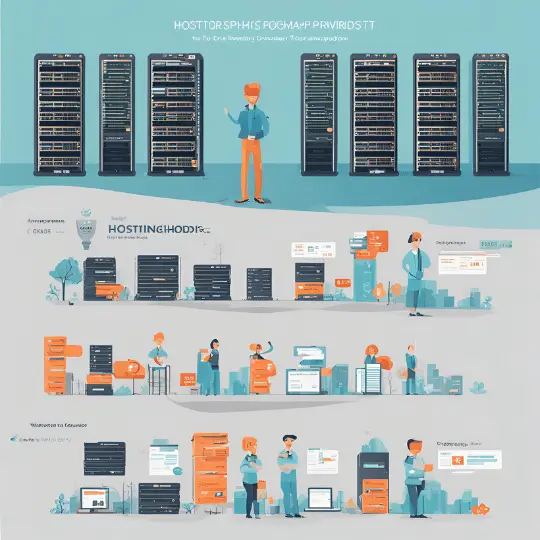Understanding Your Needs and Goals
Before engaging with a website development company, it is imperative to have a well-defined understanding of your website’s goals and requirements. Identifying the primary purpose of your website is the first step in this process. Whether you aim to create an e-commerce platform, a corporate website, a portfolio, or a blog, each type has unique needs and functionalities that will influence the development approach.
Equally important is understanding your target audience. Knowing who will visit your website will help you tailor its design, functionality, and content to meet their expectations and preferences. A clear understanding of your audience’s demographics, interests, and online behavior will guide you in making informed decisions about user experience and interface design.
Key functionalities of your website should also be clearly outlined. Consider what essential features are necessary to achieve your website’s purpose. For instance, an e-commerce site may require a product catalog, shopping cart, and payment gateway integration, while a corporate site might need a comprehensive service list, contact forms, and client testimonials. Detailing these functionalities in advance will ensure that the development company can accurately estimate the scope and cost of your project.
Desired outcomes are another critical aspect to consider. Define what success looks like for your website. Is it increased sales, higher visitor engagement, or improved brand visibility? Setting specific, measurable goals will help you track the effectiveness of your website and make necessary adjustments post-launch.
Having a clear vision and set objectives is crucial for guiding the development process. A well-articulated strategy ensures that all stakeholders are on the same page and that the development company understands your expectations. This clarity will not only streamline the project but also influence your choice of a development partner, as you will be better equipped to select a company that aligns with your vision and has the expertise to deliver the desired results.
Evaluating Company Experience and Expertise
When selecting a website development company, it is crucial to thoroughly evaluate their experience and expertise to ensure they can meet your specific needs. One of the primary methods to gauge a company’s capabilities is by examining their portfolio. A comprehensive portfolio showcases the variety and quality of projects they have completed, offering insight into their design aesthetics, functionality, and overall execution. Pay attention to projects that closely align with your industry, as this can indicate the company’s familiarity with your business needs and challenges.
In addition to reviewing the portfolio, it is beneficial to check for industry-specific experience. Companies with a history of working within your industry are more likely to understand the nuances and requirements unique to your field. This experience can lead to more intuitive and effective website solutions tailored to your audience. Case studies are another valuable resource, providing detailed accounts of past projects, including objectives, processes, and outcomes. These studies can highlight the company’s problem-solving abilities and their capability to deliver successful results.
Verifying a company’s technical skills is equally important. Ensure they have proficiency in various programming languages, such as HTML, CSS, JavaScript, and back-end languages like PHP or Python. Additionally, assess their expertise in content management systems (CMS) like WordPress, Drupal, or Joomla, as well as their familiarity with modern web technologies, including responsive design, SEO best practices, and web accessibility standards.
Client testimonials and reviews are indispensable tools for gauging a company’s reputation and reliability. Seek feedback from previous clients to understand their experiences, focusing on aspects like communication, project management, and post-launch support. Reliable reviews can often be found on the company’s website, third-party review platforms, or industry forums.
By meticulously evaluating a website development company’s experience and expertise, you can make an informed decision, ensuring your project is handled by professionals who are capable of delivering a high-quality, effective website.
Assessing Communication and Project Management
Effective communication and robust project management are critical components when partnering with a website development company. Evaluating the company’s communication channels is essential. Clear and consistent communication fosters a collaborative environment and ensures that project requirements are properly understood and executed. Assess their responsiveness and transparency. A reliable development company should be prompt in their responses and forthright in their communication, providing regular updates on the project’s progress and any potential issues.
Another pivotal aspect is the presence of a dedicated project manager. The project manager serves as the main point of contact, streamlining communication between the client and the development team. This role is crucial for maintaining accountability and ensuring that the project stays on track. Understanding the project management methodologies employed by the company is also important. Whether they use Agile, Waterfall, or another approach, their methodology should align with your project needs and timelines.
Agile methodology, for instance, is iterative and flexible, allowing for adjustments throughout the development process. It is ideal for projects that may evolve over time. In contrast, the Waterfall approach is more linear and structured, suitable for projects with well-defined requirements from the outset. Assess how the company handles timelines and milestones to ensure they can meet your deadlines without compromising on quality. Effective project management involves setting realistic timelines, breaking down the project into manageable milestones, and regularly reviewing progress against these benchmarks.
Moreover, inquire about their strategies for handling potential roadblocks. A proficient website development company should have contingency plans in place to address unforeseen challenges promptly. This demonstrates their capability to navigate issues without derailing the project. By thoroughly assessing these aspects, you can ensure that your chosen website development company is equipped with the necessary communication and project management skills to deliver a successful project.
Considering Budget and Contractual Terms
When selecting a website development company, understanding the financial aspects and contractual obligations is crucial. The first step is to request and compare quotes from multiple companies. This allows you to get a sense of the market rates and ensures you are not overpaying. When requesting quotes, ask for detailed proposals that clearly outline the scope of work, deliverables, and timelines. A comprehensive proposal will help you understand what you are paying for and avoid any misunderstandings later on.
It’s essential to scrutinize the pricing structure provided by the website development company. Look beyond the total cost and examine how the pricing is broken down. Are there any hidden costs or additional fees for extra features or services? Understanding these details upfront can prevent unexpected expenses down the line. Ensure that the proposal includes all costs, including design, development, testing, and maintenance.
Equally important are the contractual elements. Clear and detailed contracts can safeguard both parties involved. Payment schedules should be clearly defined, specifying when payments are due and what milestones trigger these payments. This ensures that you are not paying for incomplete work and keeps the project on track. Deliverables must be clearly listed in the contract, including specifications for design, functionality, and any other requirements.
Intellectual property rights are another critical aspect to consider. Make sure the contract states who will own the final product, including the code and design elements. This is particularly important if you plan to make future modifications or use the website for commercial purposes. Additionally, service level agreements (SLAs) should be established to set the expected level of service, including response times and support availability.
Incorporating these financial and contractual considerations ensures that all terms are transparent and mutually agreed upon before commencing the project, ultimately leading to a smoother and more successful website development process.


